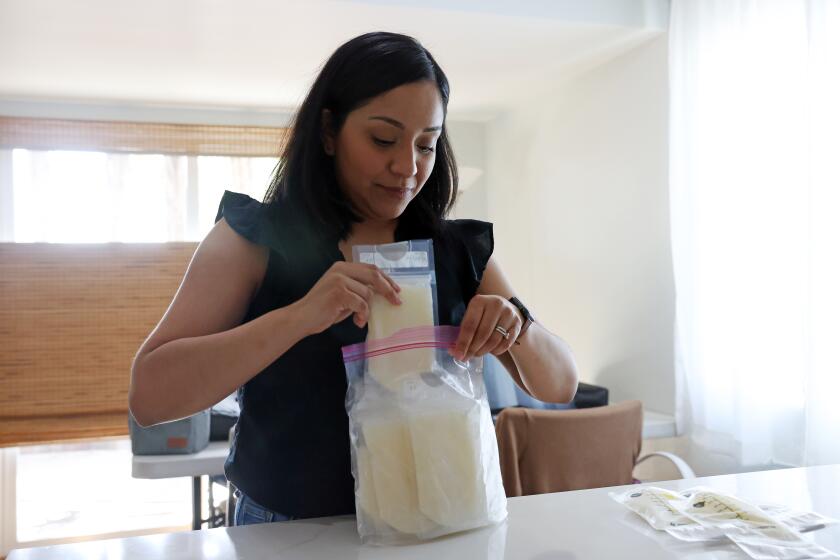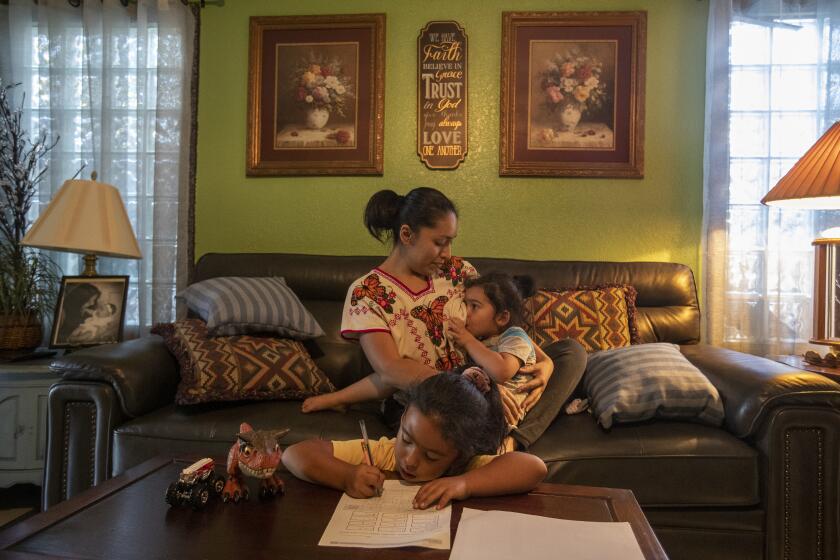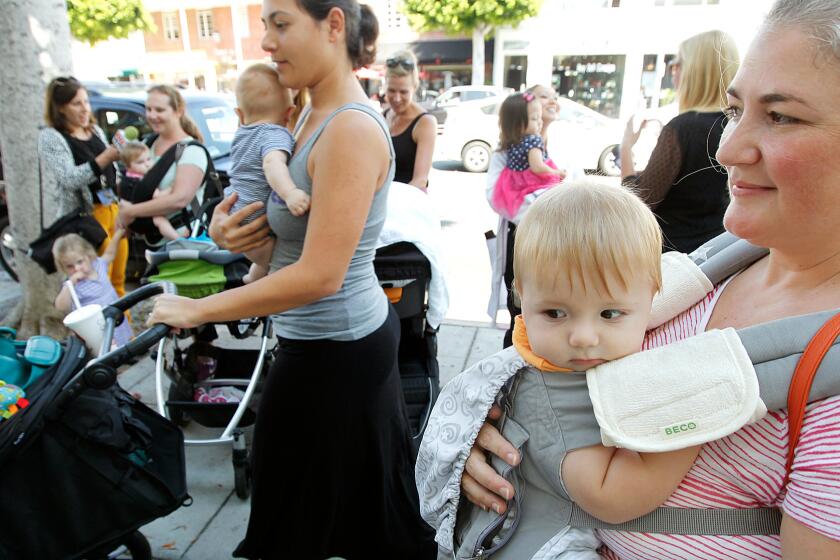Human milk is essential, yet scientists know little about it. UCSD plans to change that
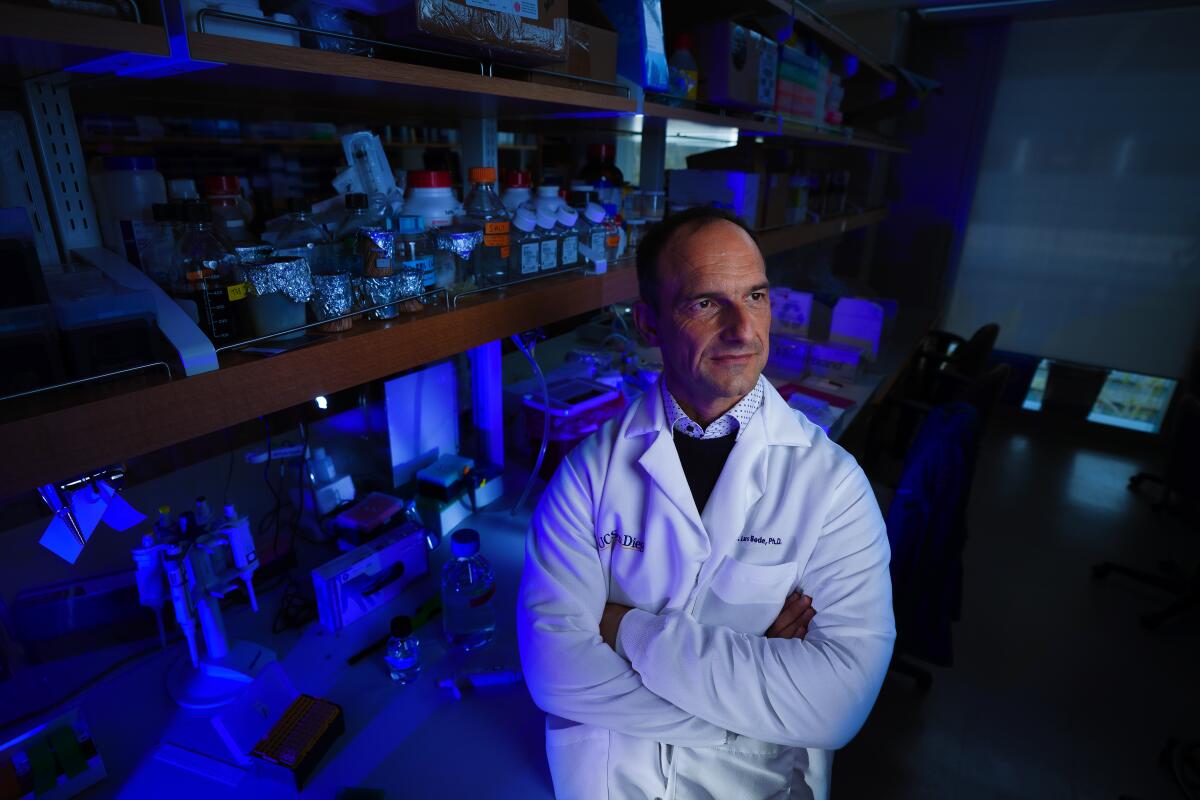
- Share via
It is one of the few foods that nearly everyone on the planet has consumed at some point. It’s linked to a host of health benefits, from reducing the risk of asthma and Type 1 diabetes to fighting off infections.
Yet despite the outsized role it plays in sustaining our species, this essential substance — human milk — has been the subject of curiously little research, especially compared to other aspects of diet and reproduction.
Today, UC San Diego formally inaugurates the Human Milk Institute, the first academic institution in the U.S. devoted to a crucial element of human nutrition that science is, in many ways, only beginning to understand.
“I find it fascinating that we know so little about it,” said institute director Lars Bode, a sugar biologist at UCSD. “How is it possible that there is an entire biosynthetic pathway in the human body where if you had to put this in a biochemistry textbook, you would have an empty page?”
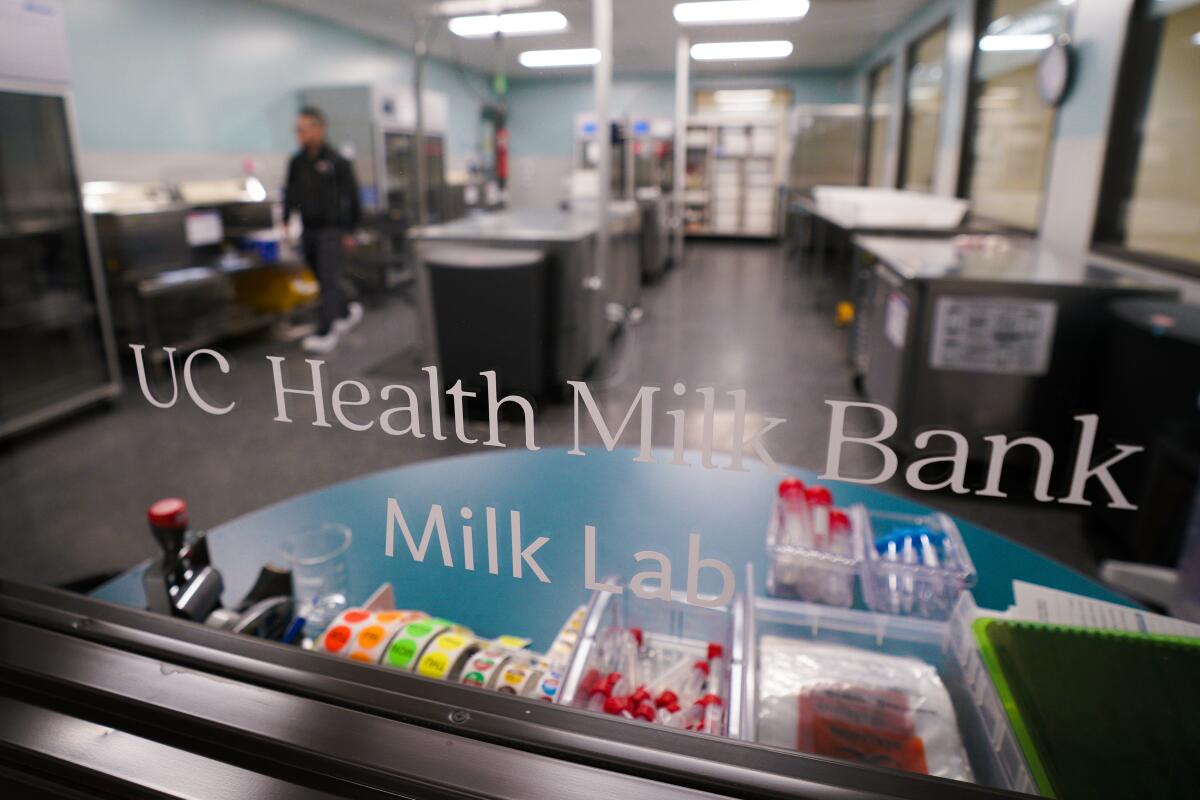
Roughly 95% of babies consume human milk at some point in their young lives, according to a 2018 UNICEF report. The American Academy of Pediatrics, the World Health Organization and UNICEF all say it should be the only food given to babies in their first six months of life.
Abundant research has found correlations between an infant diet of human milk and better health outcomes in infancy and later life, including reduced risks of long-term issues like obesity, cardiovascular disease, childhood leukemia and even sudden infant death syndrome. While many babies get their milk through breastfeeding, the benefits still apply if it comes from a bottle or hospital feeding tube. The milk doesn’t have to be from a biological parent: unlike blood or bone marrow, there are no biological markers in donated breast milk that limit who can receive it.
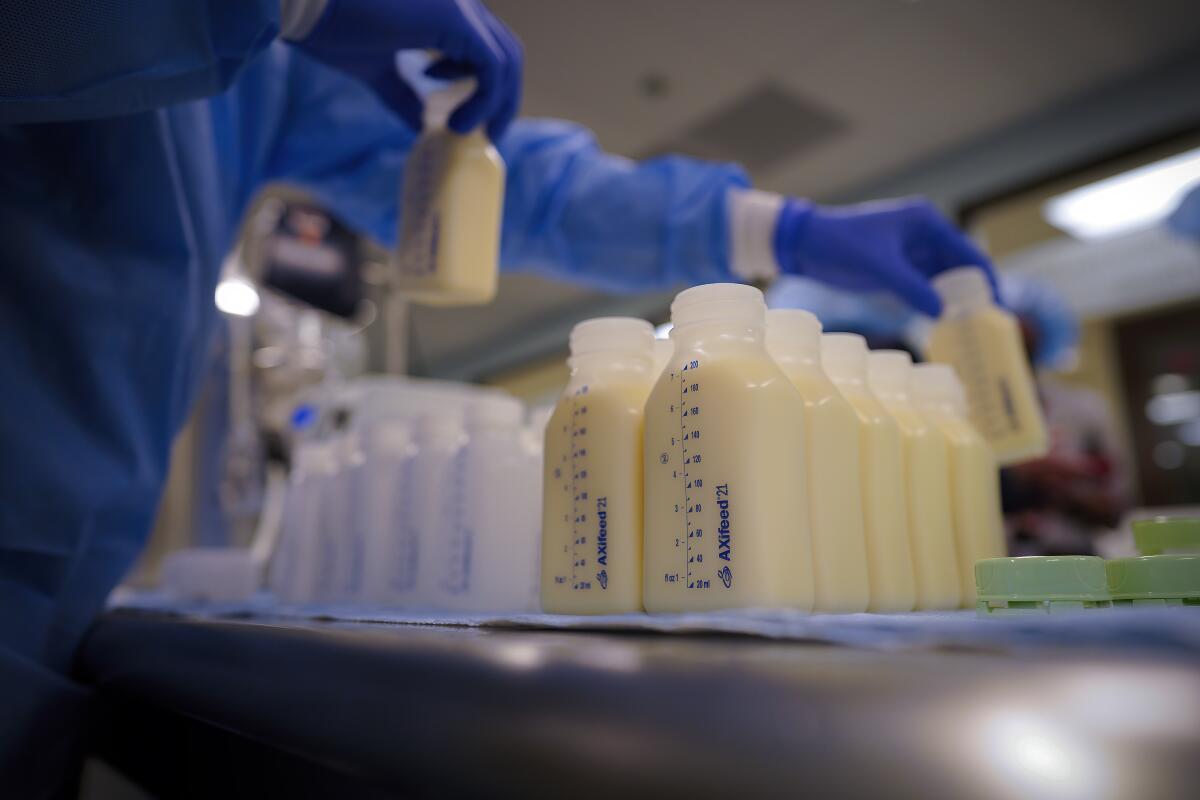
Human milk’s value to our species is no secret, but many questions about it remain unanswered. Among them: Why does milk produced from a human body have benefits that aren’t in formula designed to mimic it as closely as possible? Why does milk supply vary so widely among women, and between individual pregnancies?
And how is it that we’ve been lactating for as long as we’ve been on the planet and we still don’t know this stuff?
Lactating parents across California are pitching in to help feed other people’s children during the ongoing national baby formula shortage.
Some half-dozen U.S. universities have institutes devoted to wine, some of them going back decades. Vanderbilt University has an institute for the study of coffee since 1999.
In a 2018 TED talk, Katie Hinde, director of the Comparative Lactation Lab at Arizona State University, said the National Library of Medicine has more studies devoted to tomatoes than to human milk.
“That we know so much less about breast milk, the first fluid a young mammal is adapted to consume, should make us angry,” she said in her talk.
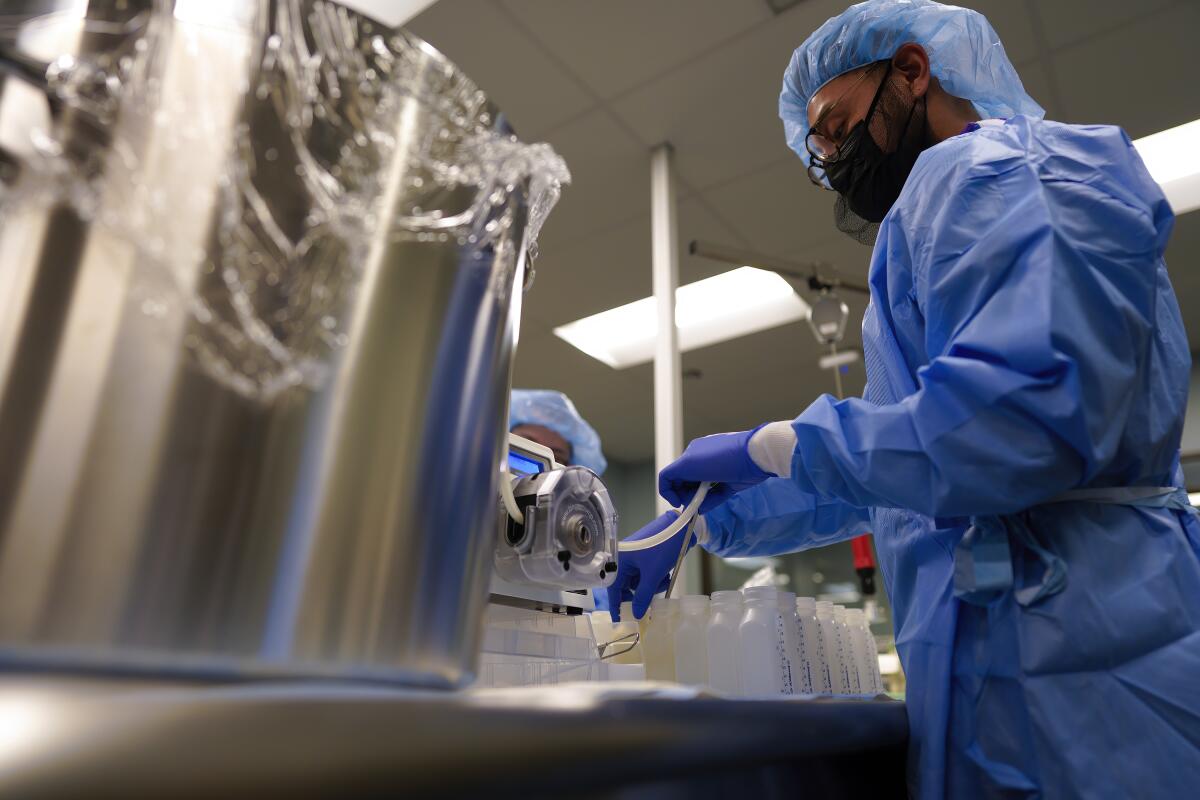
At UCSD, the new institute’s three main components are Bode’s lab, the Mother-Milk-Infant Center of Research Excellence; the UC Health Milk Bank, which distributed 200,000 ounces of donated breast milk last year; and the Human Milk Research Biorepository, which holds more than 50,000 samples of donated human milk for use in scientific research.
“There’s so much milk coming through here, we can really drive research,” said Dr. Lisa Stellwagen, a pediatrician and co-director of the institute who runs the milk bank. Being able to understand immediately how a pathogen affects the food supply for babies is essential, she said, adding that, in a crisis, “you can’t shut down breastfeeding.”
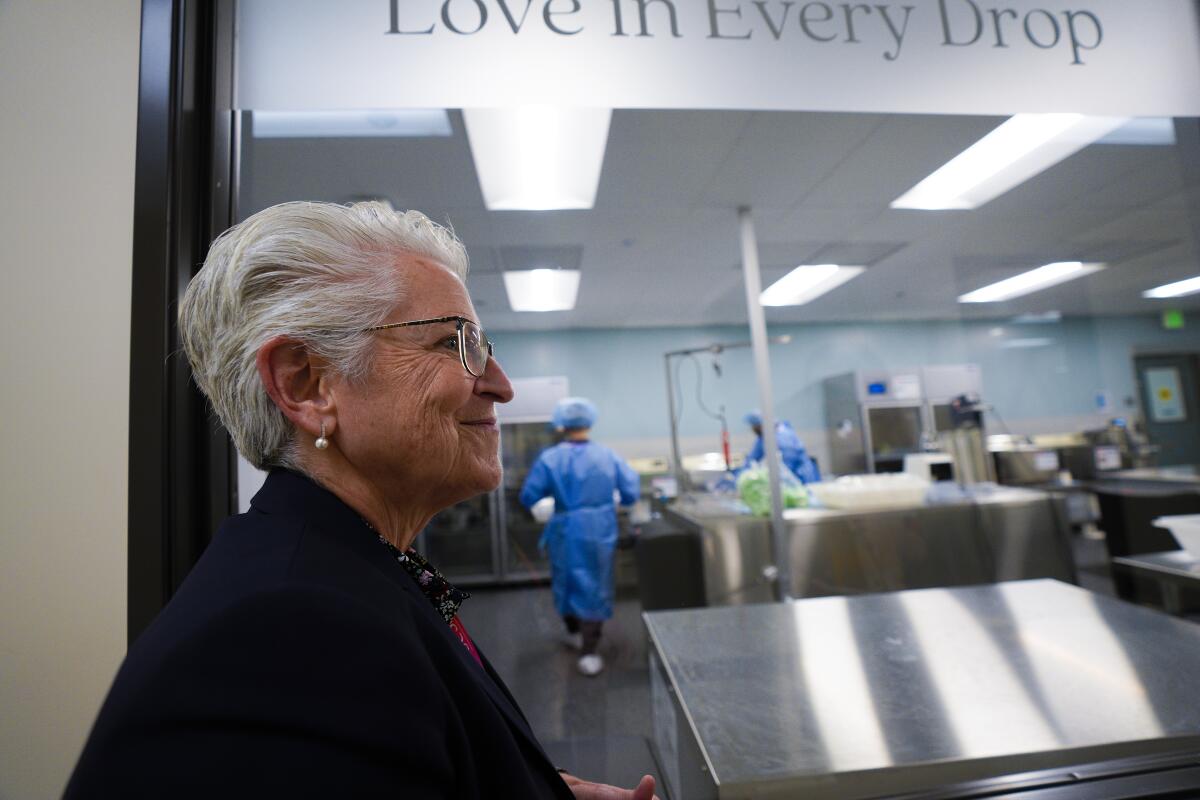
This became apparent when COVID-19 hit. Though the U.S. Centers for Disease Control and Prevention and the World Health Organization encouraged parents to continue breastfeeding, there was no reliable data on whether the coronavirus could pass to children through infected milk.
Epidemiologist Christina Chambers, who runs the biorepository, put out a call for milk donations from nursing mothers who suspected or knew they had caught the coronavirus. Working with Bode’s lab and infectious disease pediatricians at UCLA, they were able to determine that the SARS-CoV-2 virus was not present in quantities that could infect a baby, and that pasteurization eliminated any traces of it in donated milk.
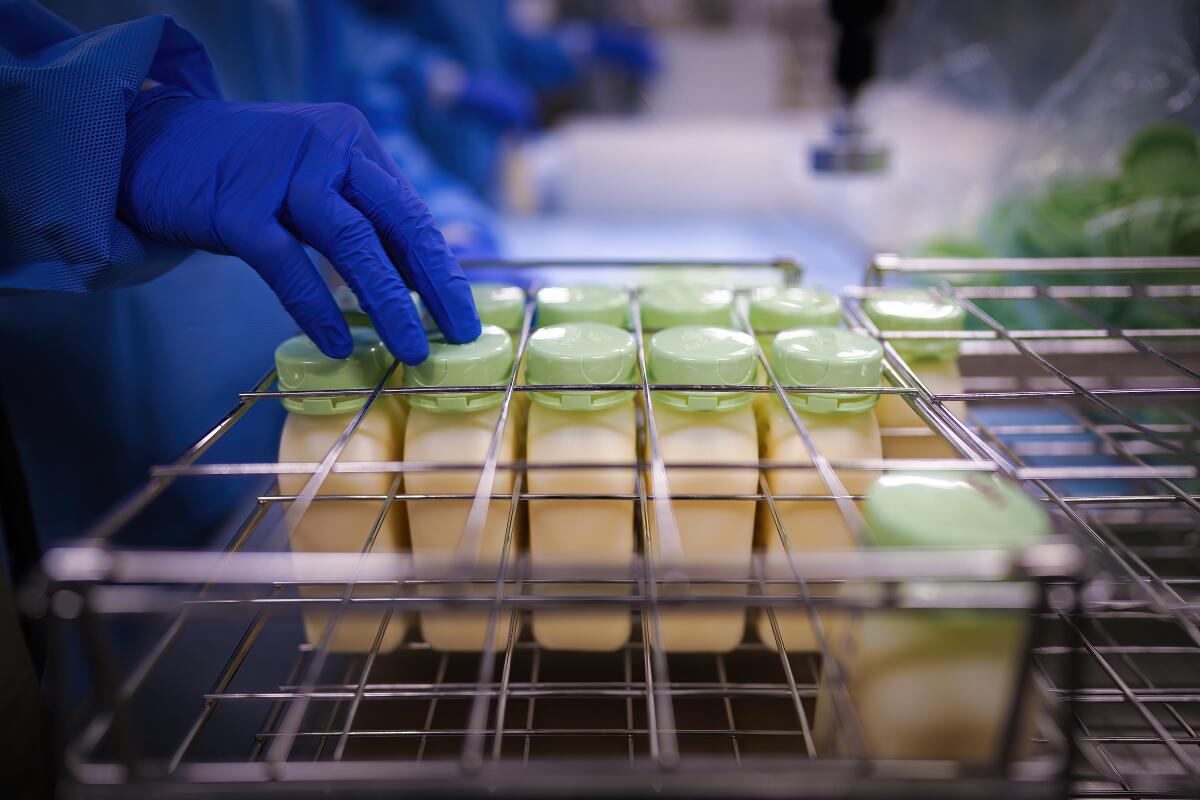
Even before their study was published in the Journal of the American Medical Assn. in August 2020, the WHO posted a pre-print version to its website, offering assurance to doctors and families around the world that it was safe to continue breastfeeding.
Being able to analyze the effects of new medications, diseases and vaccines on human milk is essential, said Chambers, who is also a co-director of the milk institute. “Women who are lactating have to take medications and get vaccines just like everybody else,” she said. “In the absence of information, women will choose not to breastfeed or not to take a needed medication, neither of which is optimal for them or the baby.”
Vaccinated parents say they are continuing to give human milk to their young children beyond six months or a year to protect them from COVID-19.
The institute aims to collaborate with researchers who may not even realize their work has any bearing on human lactation.
Bode’s lab has funded early-stage research projects that used milk to study treatments for cardiovascular disease, understand the intestinal microbiome and develop a biosensor that can detect certain compounds in milk in minutes.
The institute’s long-term goals include establishing a medical board certification in breastfeeding. The closest thing currently available to physicians is a certification from the International Board of Lactation Consultant Examiners, though that coursework was designed for nurses and breastfeeding support consultants.
The absence of a board specialty in lactation “is really a gap,” Stellwagen said.
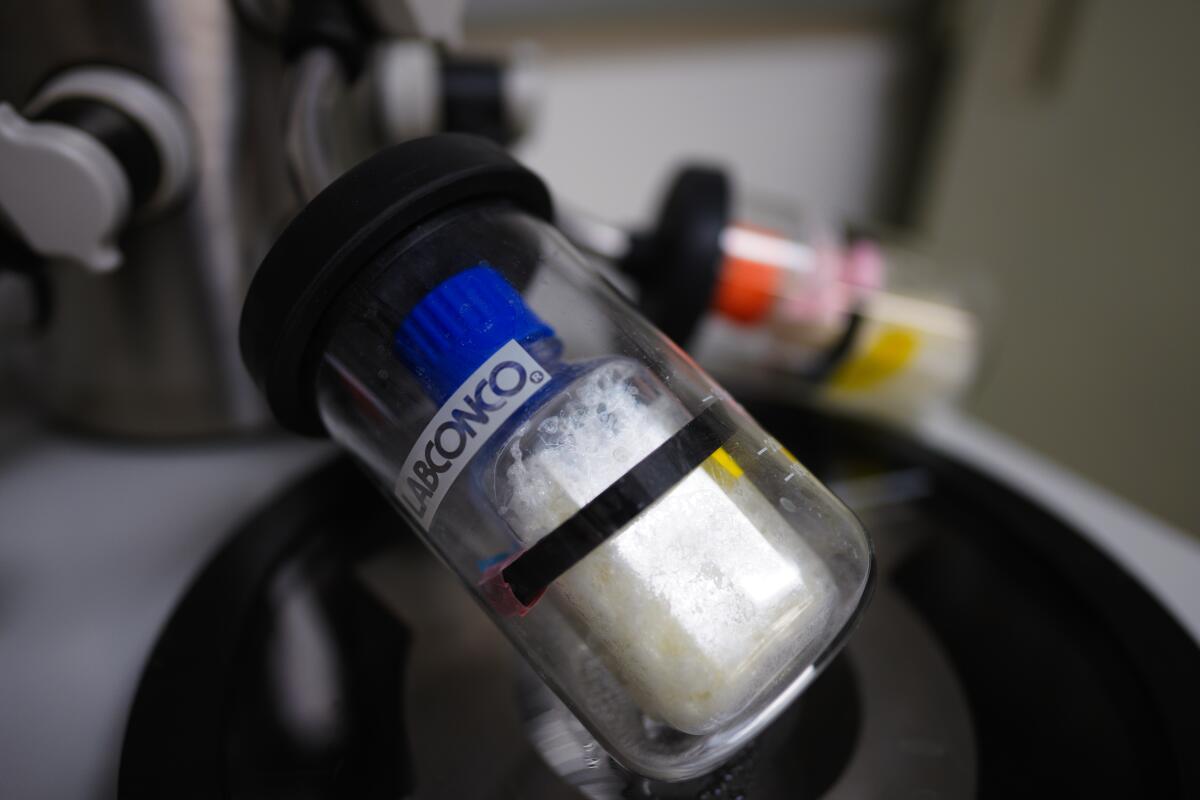
Bode, too, marveled that a profession with more than 160 specialties and subspecialties does not have one called lactology. “To me, that’s mind-boggling,” he said.
Translating the research at the Human Milk Institute into real-life improvements in the health of babies and mothers will require change far beyond its walls. Feeding a baby nothing but breast milk requires that a mother have both the time to produce it and access to help if any health issues affect her supply. In the U.S., families with lower socioeconomic status tend to have lower breastfeeding rates.
In an immaculate mid-century spread nestled in the canyons of Beverly Hills, a Hollywood actress plucks her sleepy infant daughter from the co-sleeper bassinet attached to her bed and settles in for a cozy breastfeeding session.
“Scientifically decoding the complexities of human milk is a vital component for improving human health,” Hinde said, “but only if we as a society do more to support babies and families, from legislation that ensures paid parental leave to universal access to lactation support and baby-friendly hospitals.”
Bode agrees.
“This is not just an academic exercise. We want to have an impact on the local and the global community when it comes to public health,” he said. “We need to be working with the communities, working with other stakeholders, working with policymakers. That’s absolutely the goal.”
